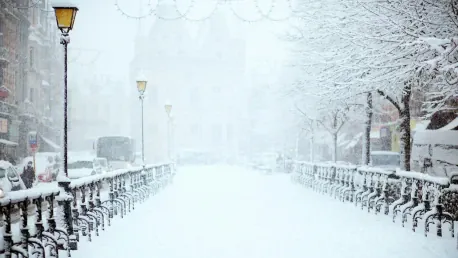The Michigan Department of Insurance and Financial Services (DIFS) is urging residents to review their auto, home, and renters’ insurance policies to ensure they fully understand their coverage and have a plan to pay policy deductibles in the event of an emergency. Winter-related damage can lead to expensive repairs, sometimes costing up to thousands of dollars. Knowing how your insurance policies apply and what they cover is key to a smooth recovery if you experience a loss. Furthermore, taking proactive steps to prevent winter-related damage can help reduce repair costs and minimize disruptions when severe weather hits.
1. Guidelines for Automobile Owners
Winter driving comes with additional risks, so it is important to check your auto insurance policy to ensure that you have the coverage you need. Securing the right kind of coverage can make a significant difference in the event of an accident or other damage during the winter season. Coverages you may consider purchasing or confirming you currently have include Collision Coverage, Comprehensive Coverage, and Property Protection. Each of these coverages is designed to protect you and your vehicle in different circumstances, making them essential for safe and informed winter driving.
1.1 Collision Coverage
Collision Coverage provides protection for damage to your vehicle while driving, should your vehicle collide with another vehicle or object, like a tree or utility pole, from loss of traction due to ice and snow. These kinds of incidents are particularly common during the winter when roads become hazardous. Ensuring that your policy includes adequate Collision Coverage is essential to avoid high out-of-pocket expenses if an accident occurs. In addition to covering repairs to your vehicle, such coverage can also provide peace of mind knowing that you are financially prepared for the unexpected.
1.2 Comprehensive Coverage
Comprehensive Coverage provides protection for non-collision incidents where damage is still sustained. Examples include damage from falling tree limbs, hitting a deer, hail, or vandalism. Winter storms can cause significant damage to vehicles, and Comprehensive Coverage ensures that such damages are covered even if they do not result from a collision. Having this coverage means that you are protected from a wide range of incidents that could otherwise lead to considerable repair costs, allowing you to drive with more confidence during the winter months.
1.3 Property Protection
Property Protection is one of the three mandatory coverages required to drive legally in Michigan. It provides protection for damage unintentionally caused to another person’s property, such as sliding off the road or damaging someone’s mailbox. This coverage is crucial as it ensures that you are not left financially responsible for damages caused to others’ property. Especially during winter when road conditions can lead to unexpected accidents, having Property Protection can save you from the burden of repair costs and potential legal consequences.
2. Guidelines for Homeowners
Homeowners’ insurance policies usually cover damages resulting from sudden events like burst pipes, ice dams, wind damage, or a building collapse caused by the weight of ice or snow. However, coverage for power outages may only apply if the outage results from a covered event, such as wind or snow damage. It is crucial for homeowners to understand what their policies cover and to have a plan to pay policy deductibles in the event of an emergency. This preparation allows them to take full advantage of their coverage without affecting their finances.
2.1 Prevent Frozen Pipes
Homeowners should review their policies and consider these steps to help prevent winter damage: Keep your home heated to at least 65 degrees to prevent frozen pipes. If you’re traveling, have someone check your home to catch any burst pipes as soon as possible. Frozen pipes are a common winter risk that can lead to significant water damage and repairs. By maintaining a sufficient heat level and ensuring regular checks during absences, homeowners can mitigate the risk of pipes freezing and bursting, thereby avoiding costly and disruptive repairs.
2.2 Clean Gutters to Prevent Ice Dams
Another essential step is to keep gutters clean to prevent ice dams, which occur when melting ice refreezes under roof shingles. Ice dams can cause water to seep into the home, leading to leaks and potential structural damage. Regularly cleaning gutters and ensuring proper drainage can help prevent the formation of ice dams. This maintenance step is especially important before heavy winter storms, as it can prevent water damage and preserve the integrity of the home’s roofing system.
2.3 Tree Maintenance
The Michigan Department of Insurance and Financial Services (DIFS) advises residents to thoroughly review their auto, home, and renters’ insurance policies to ensure they understand their coverage and have a strategy for paying policy deductibles in emergencies. Winter storms can cause significant damage, leading to expensive repairs sometimes amounting to thousands of dollars. It’s crucial to be aware of how your insurance policies function and what they cover to ensure a smooth recovery if a loss occurs. Additionally, taking proactive measures to stave off winter-related damage can help lessen the cost of repairs and minimize severe weather disruptions. Simple steps like insulating pipes, checking the roof, and ensuring your vehicle is winter-ready can make a big difference. By staying informed and prepared, you can protect your property and finances from the unforeseen costs of winter weather. Remember, understanding your insurance policies fully and taking preventative action can save you significant money and stress when severe weather strikes.









